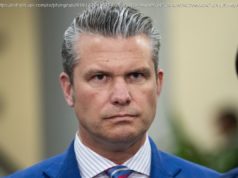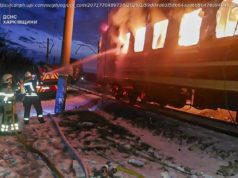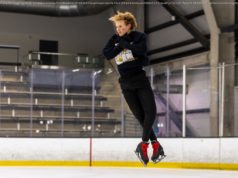An Israeli military spokesman on Saturday accused Iran of orchestrating a rocket barrage from Gaza into Israel, saying Gaza militants were carrying out the launches «under guidance, instructions and incentives» given by the Islamic Republic.
But IDF spokesman Lt. Col. Jonathan Conricus said the militant group, which is funded by Iran, coordinated the attack with Iran’s al-Quds Revolutionary Guard Corps, which has forces in Syria.
In a rare move, the Israeli military threatened to carry out airstrikes in Syria against Syrian and Iranian targets in response.
«Over the night, we have passed those messages to the relevant parties, and I’d emphasize and say that our response is not limited geographically,» Conricus said in a briefing to reporters Saturday morning.
Israel seldom acknowledges carrying out strikes in Syria, and it is practically unheard of for it to warn of those strikes in advance.
Rocket fire comes after protests and earlier clashes
Friday’s rocket fire began in the evening, triggering red-alert sirens across the Gaza periphery.
In its response, the IDF said its fighter jets and helicopters struck nearly 100 targets in the coastal enclave, including a tunnel, advanced weapons manufacturing sites, and military facilities belonging to Islamic Jihad and to Hamas, the militant group that controls Gaza.
The IDF also said it hit a four-story building that is reportedly a headquarters for Hamas’ General Security Services.
By early Saturday afternoon, the rapid rise in tensions appeared over, with the restoration of a ceasefire apparently mediated by Egypt.
Islamic Jihad issued a statement in which it mentioned contact with Egyptian officials and declared its «commitment (to a ceasefire) in exchange for (similar) commitment by the Israeli enemy.»
A spokesman for the Israeli Prime Minister’s office would not comment on the reported ceasefire.
The escalation followed violence earlier Friday along the fence that separates Gaza and Israel. Five Palestinians died after being shot by Israeli soldiers, according to Palestinian Health Ministry officials.
The ministry identified them as Muhammad Khaled Mahmoud ‘Abd al-Nabi, 27; Nassar Abu Tim, 22; Ahmed Said Abu Libda, 22; Ayesh Ghassan Shaat, 23; and Mujahid Aql, 23. More than 200 people were injured in the clashes, health officials said, including 180 by live ammunition.
The IDF said about 16,000 Palestinians had gathered along the fence, with some hurling grenades and firebombs.
The latest round of violence will likely further set back attempts to reach a new, long-term ceasefire arrangement that could improve Gaza’s humanitarian situation.
On Wednesday, Israel allowed the resumption of fuel transfers into Gaza that are financed by Qatar. The extra fuel is aimed at increasing the electricity available to Gaza’s 2 million residents, who have been making do with only a few hours of power a day.






